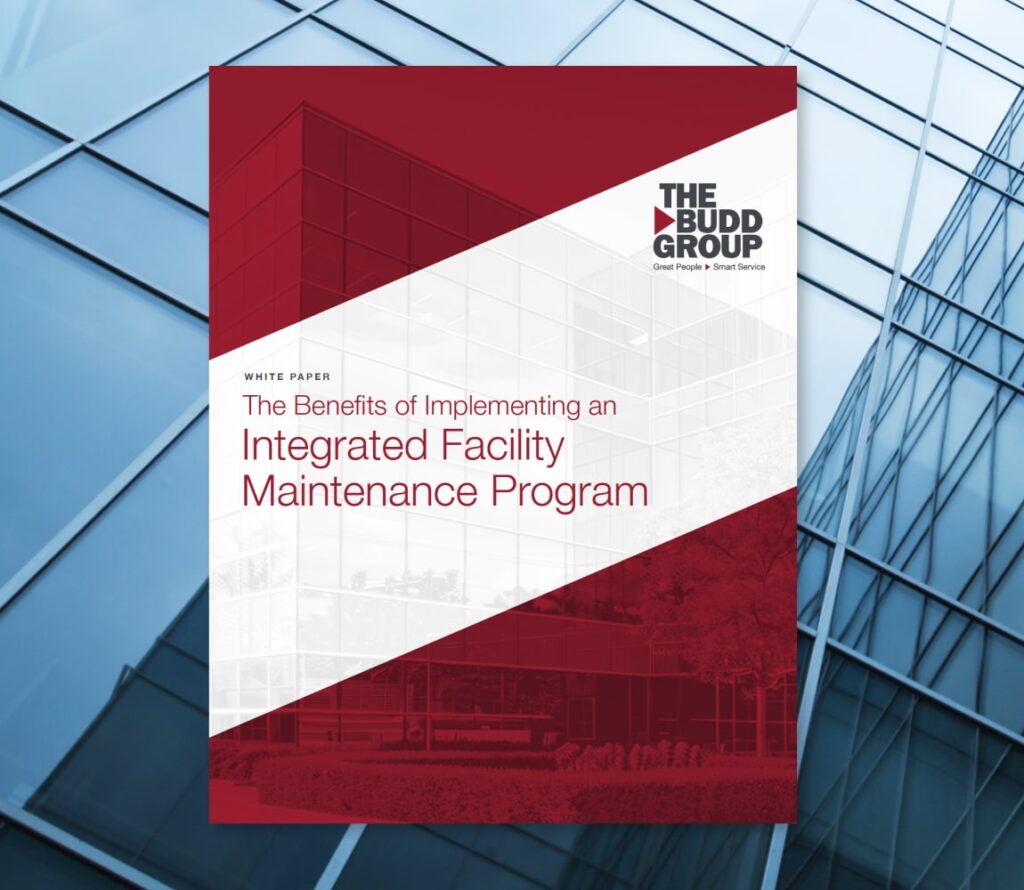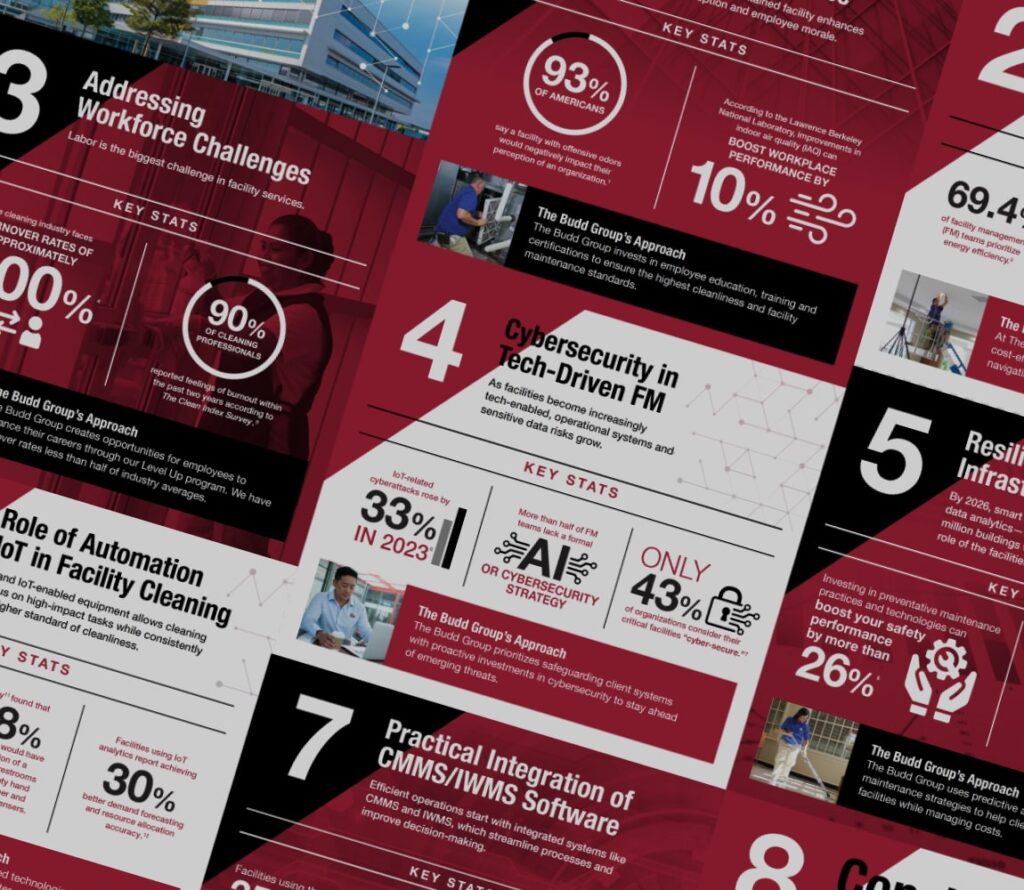Despite the swift rollout of highly effective vaccines against COVID-19, this pandemic is far from over. We now find ourselves in a race against the clock to limit mutations of the novel coronavirus that first appeared in late 2019, such as the infamous Delta variant. Fortunately, experts have learned a lot about this virus over the past year and a half. For instance, all evidence indicates that the primary means of COVID transmission is via respiratory droplets and airborne particles carrying the virus. Indeed, according to the Environmental Protection Agency (EPA), some virus-carrying particles can remain in the air for hours after someone has left the room. If a building isn’t well-ventilated, the chances of transmission increase. As such, businesses can limit the spread of COVID-19 and other viruses by improving and more closely monitoring their building’s indoor air quality (IAQ) (among other disinfection protocols).
There’s never been a better time in recent memory to invest in efficient, modern air filtration for your location. Here we’ll explore how keeping the air inside your building clean can help stop the spread of COVID-19, even the Delta variant and perhaps other variants in the future.
What Is the Delta Variant of COVID-19?
The term “Delta” has been all over the news for the past several weeks now. If you haven’t been following things too closely, however, you might not fully understand what the Delta variant is or why it’s such a growing concern at this stage. Simply put, the Delta variant is a mutation of the SARS-CoV-2 virus that causes the illness known as COVID-19. As viruses replicate more and more, different variations in their sequences begin to emerge — over time, some of these variations result in more resilient and transmissible strains, which is the case with Delta. According to the Centers for Disease Control and Prevention (CDC), this variant is almost twice as contagious as previous iterations of the virus. It’s also possible that the Delta variant can lead to more severe illness, especially in the unvaccinated.
The good news is that the vaccinations developed to combat COVID-19 continue to work well against the Delta variant. That said, fully vaccinated people may still spread the virus to others, and breakthrough infections (i.e., infections among the vaccinated) have a small chance of occurring. Today, infection rates have been increasing in many areas across the U.S. due to the Delta variant and lack of vaccination among certain communities.
How Does the Delta Variant Spread?
Now that Delta has become the predominant strain of the virus in many parts of the world, experts are regularly conducting research to compare its method of spread to that of earlier strains. While there’s still much to learn, the Delta variant spreads via airborne particles and respiratory droplets just like its previous counterparts. However, this strain can spread much more easily through the air than the original SARS-CoV-2, and it takes less time to catch the virus indoors on average than it did before. As such, proper ventilation and air filtration play an even more important role in slowing the spread than they did before.
The Importance of Proper Air Filtration Across the Board
Before this current pandemic, indoor air quality (IAQ) wasn’t high on the list of priorities for many businesses. And while the current state of affairs has become the turning point in this regard, it turns out that proper air filtration and ventilation have always mattered for building maintenance, perhaps more than most people realize. For starters, many buildings are poorly ventilated even though approximately 90% of our time is spent inside. While you might not notice the negative effects of poor filtration right away, diminished IAQ can lead to various negative outcomes for one’s health and mental state.
The SARS-CoV-2 virus isn’t the only harmful substance that may linger indoors. Many respiratory contaminants can remain in the air for hours in poorly ventilated buildings, such as dust, pollen, fungal spores, bacteria, and more, potentially leading to long-term effects on one’s health (i.e., allergies, asthma, respiratory illness, cancer, etc.). Stopping these microscopic materials in their tracks will minimize sick days and improve occupant health overall. Research also indicates that cleaner air contributes to improved brain function, mood, productivity, and learning outcomes.
As an added bonus, of course, optimal air filtration can even prevent occupants from breathing in viruses such as SARS-CoV-2 and its variations.
Advantages of the AirBox Filter
So, the importance of maintaining clean air in your building (especially these days) is well-documented. The only question now is this: how do you achieve the highest possible indoor air quality for the sake of your employees, customers, and guests? The best way to improve IAQ for all occupants while protecting them from COVID-19 is to install a highly efficient air filtration system like AirBox.
AirBox air purifiers are designed by cleanroom industry experts and hand-built by American craftsmen. These HEPA filtration systems adhere to U.S. Government standards for air purity, providing safer breathing air for all occupants within a facility. AirBox also provides engineering support and designs a customized Safe Air Plan for each and every client, mitigating the risk of spreading infectious airborne agents indoors.
Some key benefits of AirBox air filtration systems include:
- Scientifically proven to remove more than 99.99% of all particles, including SARS-CoV-2
- Outfitted with antimicrobial treated filters that capture and inhibit the growth of airborne microbes
- Uses only certified HEPA filters to remove nearly all particles greater than 0.01 microns in size
- Easy to operate with just one knob for 24/7 power
- Peak-S models come with a lifetime warranty on materials and craftsmanship
- Filters are easy to swap out (takes only seconds)
The goal of AirBox is to not only respond to the current pandemic but also to set a new high standard for IAQ, meeting or exceeding requirements put forth by OSHA, CDC, EPA, FDA, ASHRAE, and more.
How AirBox Works
The operating strategy of AirBox filtration devices can be broken up into four pillars. First, AirBox uses CFD (Computational fluid dynamics) modeling to suggest control of the airflow dynamics within the room as the most effective means of mitigating cross contamination of respiratory aerosols in proximity. From there, the installation of air purifiers in each return air duct completely eliminates respiratory aerosol migration within multiple rooms. AirBox systems also closely monitor IAQ levels. And lastly, AirBox antimicrobial treated filters effectively neutralize SARS-CoV-2 particles by penetrating their cell walls. In this way, AirBox air filtration offers comprehensive air disinfection for coronavirus and other diseases.
Clear the Air for a Safer Facility and Healthier Future
With variants like Delta on the rise and other variants likely on the way, businesses everywhere must deploy whatever methods they can do to protect their people. Few COVID-19 supplies are more valuable in this effort than an efficient air filtration system like AirBox. At The Budd Group, we’re committed to the health and safety of our employees and clients, which is why we offer high-level disinfection services for all kinds of facilities. Allow us to aid in the installation and maintenance of your air filtration systems to combat COVID-19.
To learn more about our services and values, give us a call today at 800-221-8158! And for more detailed information on IAQ, COVID-19, and the Delta Variant, visit the CDC’s website here.

